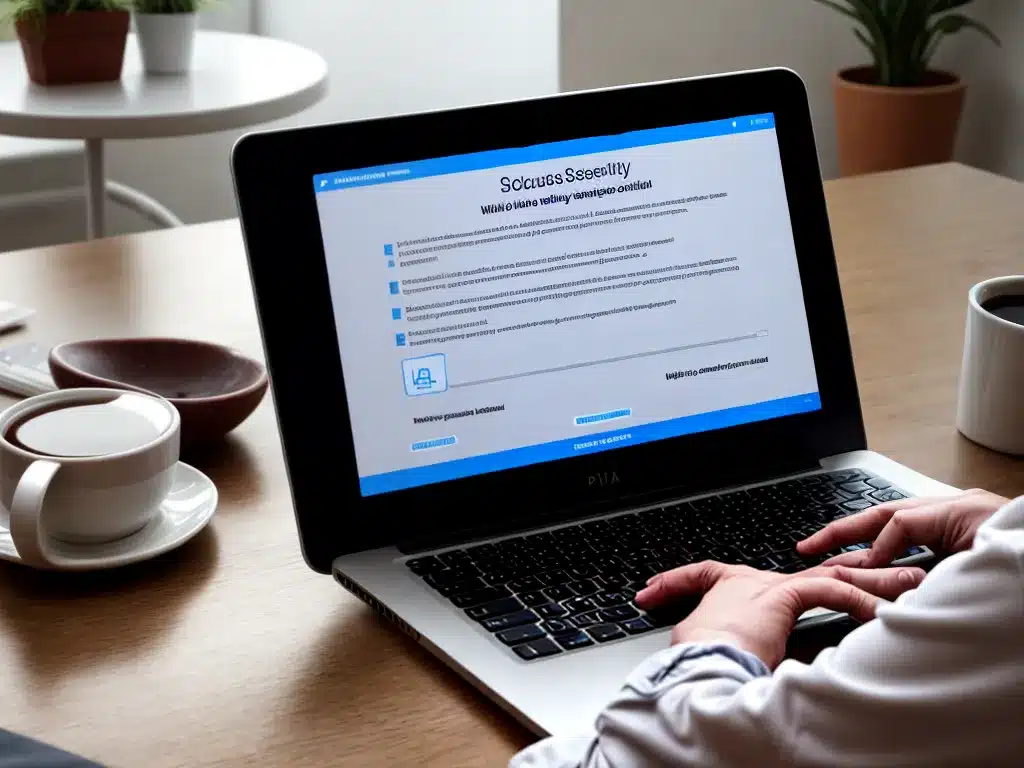
Data Security Pitfalls to Avoid When Working Remotely
Working remotely comes with many advantages, such as flexibility and improved work-life balance. However, it also introduces new data security risks that remote workers must be aware of. Here are some of the most common data security pitfalls to avoid when working outside of a traditional office environment:
Use Caution with Public Wi-Fi
Public Wi-Fi networks at coffee shops, airports, hotels, and other locations are not secure. I should never connect to public Wi-Fi when accessing company data or systems. Public Wi-Fi leaves my device vulnerable to eavesdropping and man-in-the-middle attacks. Instead, I should use a virtual private network (VPN) or personal hotspot to ensure my connection is encrypted.
Update Devices Regularly
It’s critical that I keep all of my devices patched and up-to-date when working remotely. Software updates contain vital security fixes that plug vulnerabilities which hackers exploit. I should enable automatic updates wherever possible. I should also be vigilant about updating operating systems, web browsers, applications, and security tools manually when notifications appear.
Encrypt Sensitive Data
Since remote workers often transfer files between personal and work devices, it’s essential that sensitive data is encrypted, especially when stored on portable devices like laptops and USB drives. Full disk encryption should be enabled on laptops to encrypt entire hard drives. I should also encrypt individual sensitive files and email attachments before sharing them over the internet. This helps mitigate data leaks if devices are lost or stolen.
Be Wary of Phishing Attempts
Cybercriminals routinely conduct phishing attacks aimed at remote workers to try and trick them into revealing passwords or other information. I should be suspicious of any unsolicited emails, text messages, or calls requesting personal or financial information or directing me to login to accounts. I should avoid clicking links or attachments in suspicious communications and report them to IT security teams.
Use Strong Passwords
Good password hygiene is critical for remote workers. I should use unique, complex passwords for every account and enable multi-factor authentication (MFA) whenever possible. MFA adds an extra layer of security, requiring me to enter a code from a separate device when logging in. I should also avoid saving passwords in browsers when using public devices. Using a password manager helps me generate and store strong passwords securely.
Don’t Mix Personal and Work Accounts
It can be tempting to use personal email, cloud storage, or social media accounts for some remote work activities, but mixing personal and company accounts is a security risk. I should keep work and personal online accounts separate to limit organizational exposure if any of my personal accounts are compromised in a breach.
Beware of Shoulder Surfing
Working in public places comes with the risk of shoulder surfing. Members of the public or bad actors could glimpse sensitive information on my screen. I should choose locations and positions carefully to prevent people from seeing my screen. Using a privacy screen filter provides extra protection. I should also avoid reading aloud or discussing sensitive information when others are within earshot.
Secure Home Networks
When working from home, my home wireless network should be treated like an extension of the corporate network and secured accordingly. I should change default router admin passwords, enable WPA2 encryption, disable WPS, use a firewall, and avoid using public Wi-Fi for work without a VPN. These basic measures help safeguard company data from intruders.
Being mindful of these potential pitfalls will allow me to work remotely in a secure manner, avoiding common mistakes that put sensitive company and customer data at risk. Maintaining strong security practices is a shared responsibility between remote workers and IT teams.












